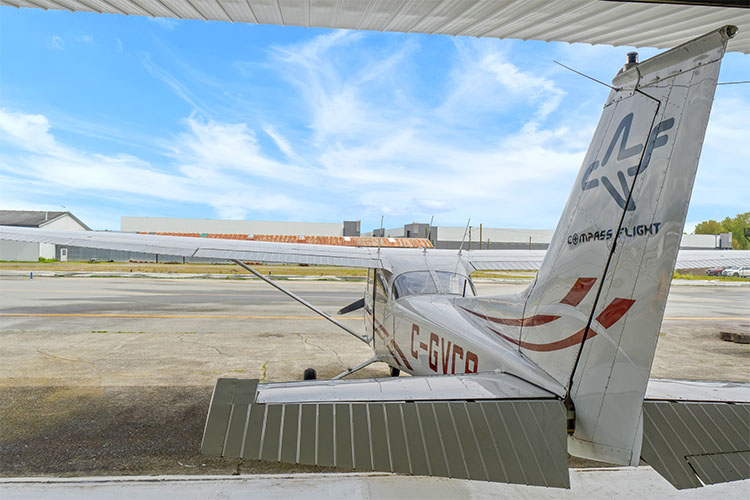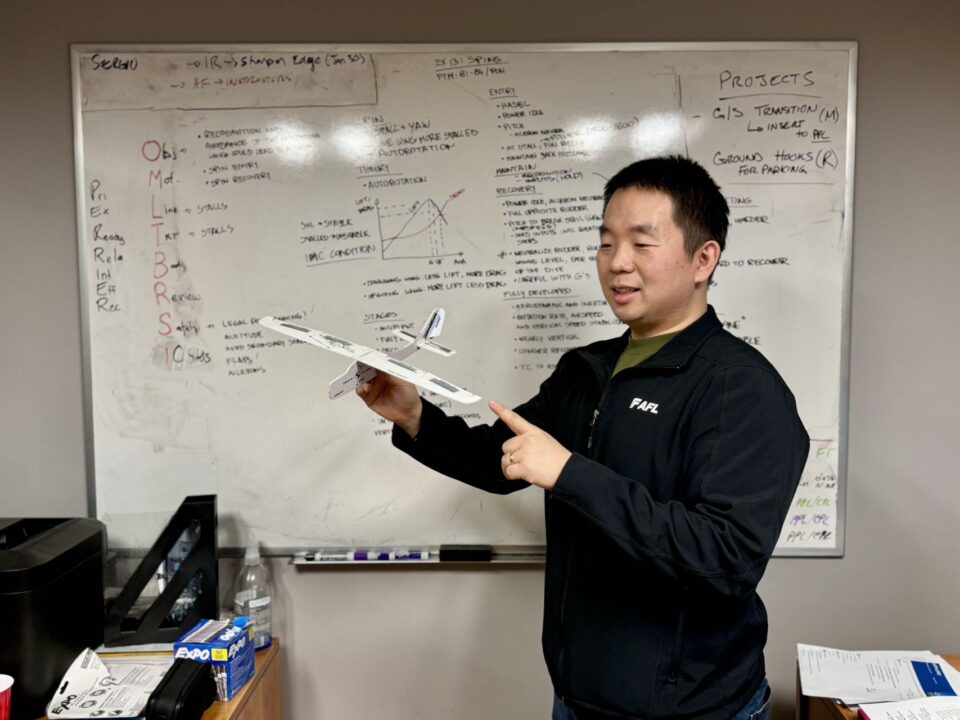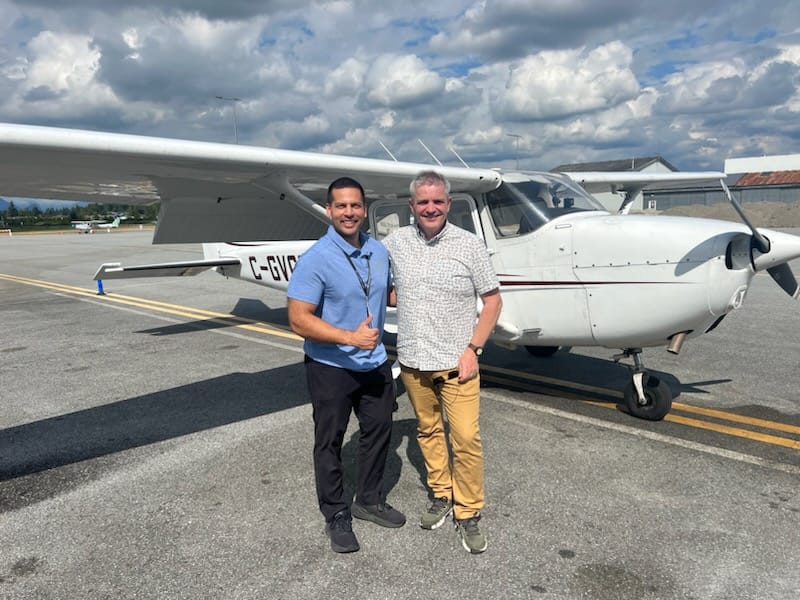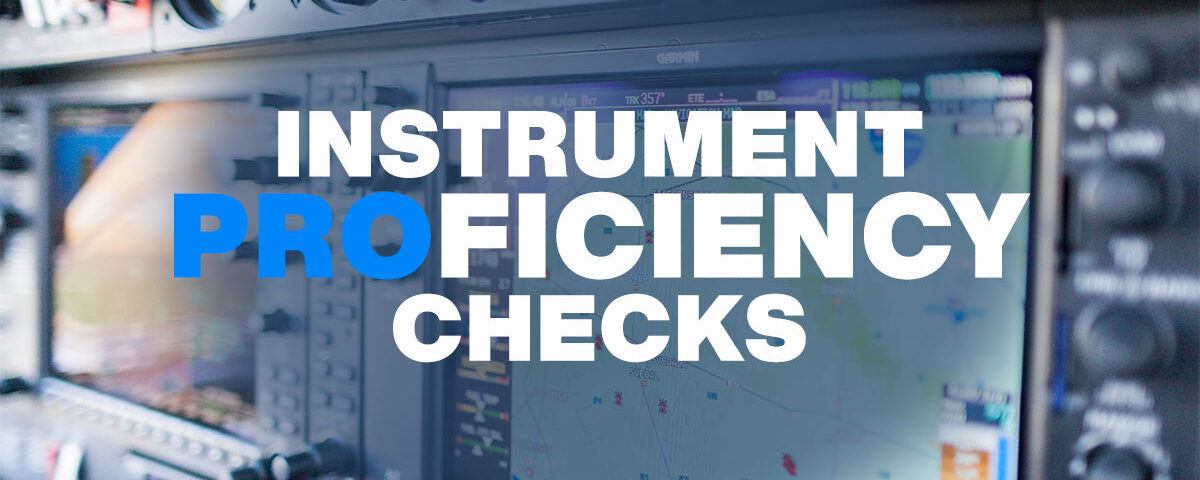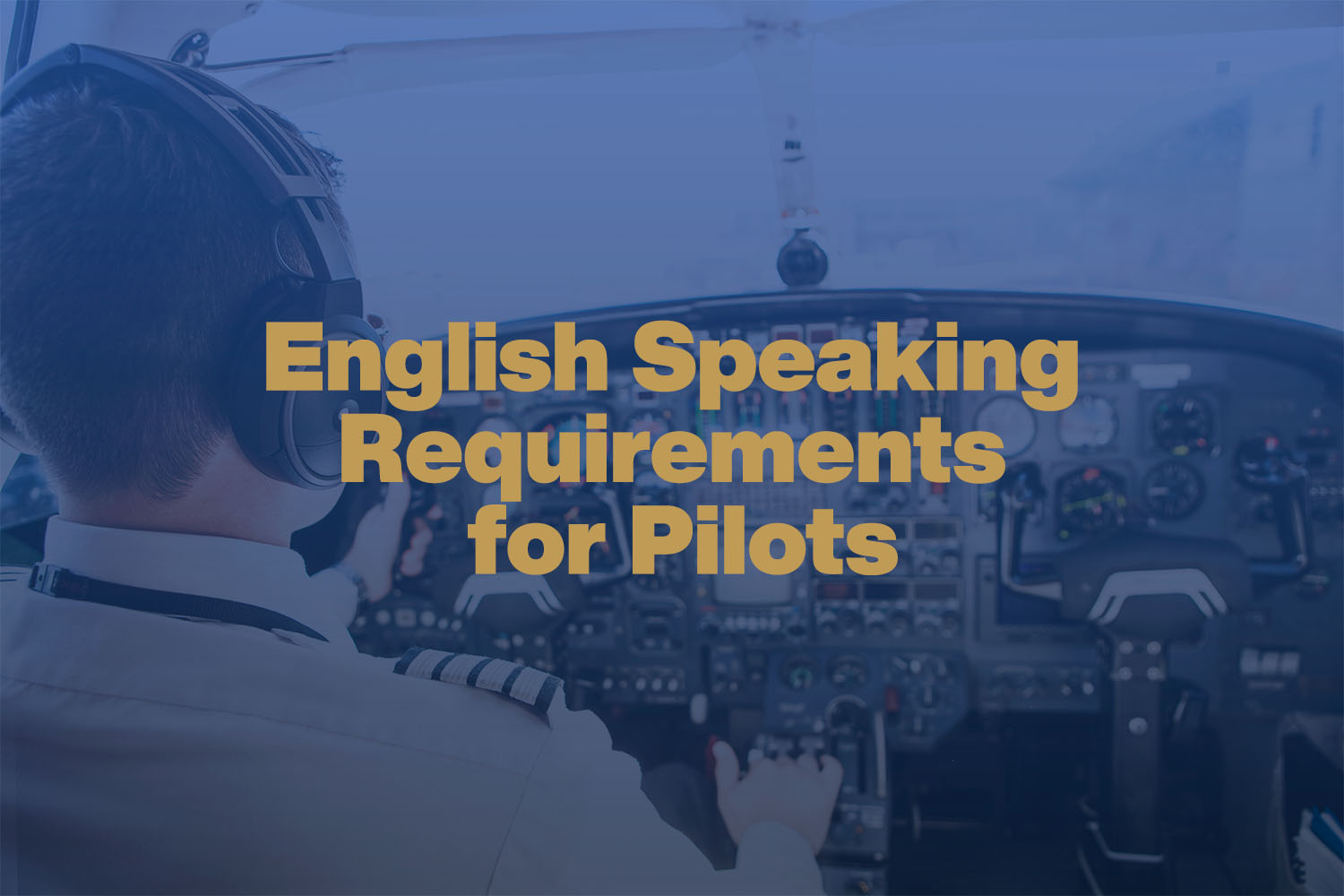
Pilot English Requirements
15 January 2023
Career in Aviation: The Time is Now to Become a Commercial Pilot.
26 February 2023How to maintain your instrument rating currency.
Instrument currency and proficiency checks are required to exercise the privileges of your instrument rating.
You are required to maintain instrument currency to exercise the privileges of your instrument rating as per Advisory Circular (AC) No. 401-005. Instrument currency is maintained with 6 hours of instrument flying, 6 approaches to minimums, in the 6 months preceding the proposed flight. Beginning on the 1st day of the 13th month after an instrument flight test or any other permittable method found in 5.0 Overview of the Program 2(a) of the AC. If you are beyond 24 months (to the day) of your last instrument flight test or any other permittable method found in 5.0 Overview of the Program 2(a) of the AC you are not current and you will need to renew. This is possible with a Transport Canada examiner by any permittable method found in 5.0 Overview of the Program 2(a) of the AC.
(Wow! That was a mouthful.)
An Example Instrument Rating Recency Scenario
For example, Jane Doe did her instrument flight test on June 21st 2021. She is legal to file and fly instrument flights until July 1st 2022 without doing any instrument flying in between. If on July 1st she has not completed 6 hours of instrument flying, 6 approaches to minimums, in the previous 6 months, she is not current and not legal to fly instrument flights.
If she wishes to make an instrument flight in the 13th month she will need to complete the 6-6-6 requirement with a safety/check pilot before she is able to conduct IFR flights. She decides to do 6 hours of instrument flying and 6 approaches in the Compass Flight Transport Canada approved ALSIM 250. She logs the FSTD (flight simulation training device) time in her log book and she is good to go until the 24th month when she will need to fulfill the 24 month recency requirements.
Jane Doe will need to meet one of the recency requirements found in the AC after 24 months since any permittable recency method found in 5.0 Overview of the Program 2(a) of the AC. The cheapest way to meet the 24 month recency requirements is in an FSTD with an IPC (instrument proficiency check). After complete the 24 month cycle starts all over again. You get 12 months after your flight test or IPC and then you must meet the 6-6-6 requirement in the 13th to 24th months.
Who is a qualified person able to supervise instrument recency?
If you are flying IFR often you will likely meet the 6-6-6 requirement and will not need anyone in the airplane to supervise your 6-6-6 recency; it will be recorded in your logbook.
If you are still within the 24 months but beyond the 1st day of the 13th month and do not meet the 6-6-6 requirement you will need a qualified person to supervise your 6 hours of instrument flying. (or however many hours you need to meet the 6-6-6 requirement) Stated in the CARs Recency Requirements 401.05(3.1)(b)(i) you must be under the supervision of a person who holds the correct qualifications. These qualifications are referred to in subsection 425.21(9). This is someone who has a CPL or an ATPL. However they must also have a flight instructor rating, OR 500 hours PIC time with no less than 100 hours on the aircraft group. In the case of Group I aircraft, not less than 10 hours shall be on the type of multi-engine aeroplane used for the training.
The good news about IFR recency!
Compass Flight Institute has a Transport Canada approved FSTD and flight instructors who meet the qualifications to do you recency requirements. If you are outside of 24 months and need an IPC we can provide a Transport Canada flight examiner to validate your instrument rating in our ALSIM 250 Transport Canada approved simulator.
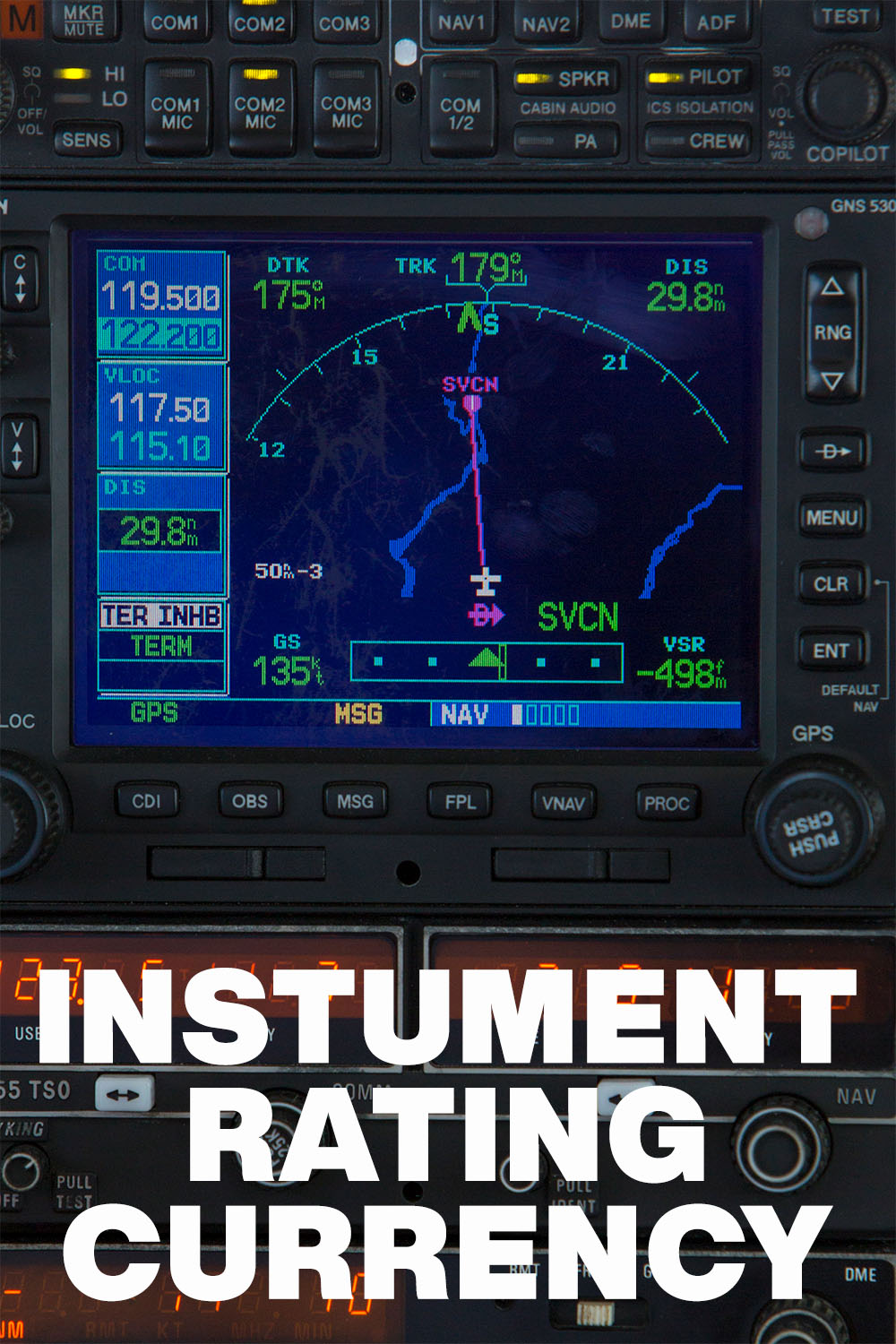

Instrument Currency vs. Instrument Proficiency
Understanding the difference between instrument currency and instrument proficiency is crucial for maintaining high standards of safety and competence in aviation. Instrument currency refers to meeting the regulatory requirements to legally fly under Instrument Flight Rules (IFR). This typically involves completing 6 instrument approaches, holding patterns, and other specific maneuvers within the previous six months.
Instrument proficiency, however, goes beyond mere compliance. It involves maintaining and honing the necessary skills and knowledge to handle complex flight scenarios and adverse weather conditions, known as instrument meteorological conditions (IMC). Proficiency ensures that a pilot can confidently and competently manage the aircraft using flight instruments alone.
Regular instrument proficiency training, including completing an Instrument Proficiency Check (IPC), is essential for bridging the gap between currency and proficiency. An IPC helps pilots refresh their skills, practice emergency procedures, and receive feedback from experienced flight instructors. This continuous training is vital for ensuring that pilots are not just legal but also truly competent and safe in all phases of flight.
Key Skills Developed in Instrument Proficiency Training
Instrument proficiency training develops several critical skills that are essential for safe and effective instrument flying. One of the primary skills is the accurate interpretation and use of flight instruments. Pilots learn to rely on these instruments for navigation and aircraft control, especially in IMC.
Another key skill is mastering instrument approach procedures. Pilots practice precision and non-precision approaches, including approaches using VOR, NDB, and ILS systems. These procedures are crucial for safe landings in low-visibility conditions.
Emergency procedures are also a significant focus of instrument proficiency training. Pilots are trained to handle various emergency scenarios, such as equipment failures and unexpected weather changes. This training includes practicing unusual attitude recoveries and simulated emergency landings.
Additionally, pilots improve their skills in planning and executing IFR flight plans. This includes understanding and complying with air traffic control (ATC) instructions, managing fuel consumption, and optimizing aircraft performance. Multi-engine operations are also covered for those flying multi-engine aircraft, ensuring pilots can handle engine-out scenarios and other complexities specific to these aircraft.
Overall, instrument proficiency training enhances a pilot’s ability to manage all aspects of IFR flying, ensuring they are prepared for any situation.
Why an Instrument Proficiency Check is Essential
An Instrument Proficiency Check (IPC) is essential for maintaining the skills and knowledge required to fly safely under IFR. The IPC ensures that pilots who hold a valid instrument rating continue to meet the high standards necessary for instrument flight. It is particularly important for pilots who have not met the instrument currency requirements within the previous 24 months.
The IPC involves a comprehensive review and assessment of a pilot’s ability to operate in instrument meteorological conditions (IMC). This includes evaluating their proficiency in using flight instruments, executing approach procedures, and responding to emergency scenarios. By undergoing an IPC, pilots can identify and address any areas of weakness, ensuring they remain competent and confident in their abilities.
Moreover, the IPC helps pilots stay current with any changes in regulations, procedures, and technology within the aviation industry. Regular proficiency checks contribute to overall aviation safety by ensuring that pilots are well-prepared to handle the complexities of instrument flight.
In essence, the IPC is a vital tool for maintaining high standards of safety and professionalism in instrument flying.
Requirements for an Instrument Proficiency Check
To complete an Instrument Proficiency Check (IPC), a pilot must meet specific requirements set by Transport Canada. First and foremost, the pilot must hold a valid instrument rating. The IPC is designed to ensure that pilots maintain the necessary skills and knowledge for IFR operations.
The IPC is conducted by an examiner and includes both ground and flight portions. The ground portion covers a review of IFR regulations, flight planning, and weather interpretation. Pilots must demonstrate a thorough understanding of these theoretical aspects before proceeding to the flight portion.
The flight portion involves performing various maneuvers and procedures to test the pilot’s proficiency. This includes holding patterns, instrument approaches, and recovery from unusual attitudes. The pilot must show the ability to control the aircraft solely by reference to flight instruments, simulating instrument meteorological conditions (IMC).
Successful completion of the IPC ensures that the pilot is competent to operate under IFR and can handle the demands of instrument flying. Regularly completing an IPC is essential for maintaining the validity of the instrument rating and ensuring ongoing proficiency.
Preparing for Your Instrument Proficiency Check
Preparing for an Instrument Proficiency Check (IPC) involves both theoretical review and practical practice. Start by revisiting the key concepts from your initial instrument rating training. This includes understanding instrument flight rules (IFR), interpreting flight instruments, and reviewing approach procedures.
Practice flying under simulated instrument conditions, either in a flight simulator or with a safety pilot. Focus on maneuvers such as holding patterns, precision and non-precision approaches, and emergency procedures. This practice helps reinforce your skills and build confidence.
Review current regulations and procedures, including any updates or changes since your last check. Ensure you are familiar with the latest air traffic control (ATC) protocols and navigation aids.
Ensure all your documentation is in order, including your pilot’s license, medical certificate, and logbook. Having these ready will streamline the process on the day of your IPC.
Mentally prepare by visualizing successful scenarios and managing any pre-check anxiety. Staying calm and focused is crucial for performing well during the IPC. By thoroughly preparing, you can approach your IPC with confidence and the knowledge needed to succeed.
Components of an Instrument Proficiency Check
An Instrument Proficiency Check (IPC) comprises several components designed to assess a pilot’s proficiency in instrument flying. The check is divided into ground and flight portions, each testing different aspects of a pilot’s knowledge and skills.
The ground portion includes a review of IFR regulations, flight planning, and weather interpretation. Pilots must demonstrate a solid understanding of these theoretical aspects, which are critical for safe and effective IFR operations.
The flight portion involves performing various maneuvers and procedures to test the pilot’s practical skills. This includes holding patterns, instrument approaches, and recovery from unusual attitudes. Pilots must show they can control the aircraft solely by reference to flight instruments, simulating instrument meteorological conditions (IMC).
During the IPC, pilots also practice emergency procedures. This includes handling equipment failures, navigating through adverse weather, and executing emergency landings. The ability to manage these scenarios effectively is crucial for ensuring safety in all phases of flight.
The IPC is conducted by a flight instructor or examiner, who provides feedback and guidance throughout the process. Successfully completing the IPC demonstrates that the pilot is proficient in instrument flying and capable of handling the demands of IFR operations.

